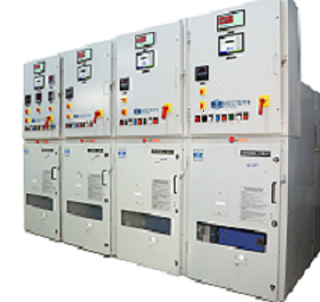In today’s world, electrical panels play a big part in making sure that electricity is safely distributed and controlled in both homes and businesses. Two of the most common types of electrical panels are LT Panels (Low Tension Panels) and HT Panels (High Tension Panels). While both serve similar purposes, they are designed for different types of electrical systems. This guide will help you understand what each panel does, the key differences between them, and when to choose one over the other.
What Are LT Panels and HT Panels?
Let’s start by looking at what LT Panels and HT Panels actually are.
Low Voltage Panels are used for low voltage applications. These panels typically work with voltages between 230V and 415V, which is the type of power most homes, small businesses, and some industries use.
In contrast, High Voltage Electrical Panels are designed for high voltage applications, working with voltages that go beyond 415V, usually ranging from 3.3kV to 33kV. These panels are needed in power plants, large industries, and areas where heavy electrical power is needed.
Key Differences Between LT Panels and HT Panels
- Voltage Level
- LT Panels: These panels work with lower voltage (230V to 415V), making them suitable for everyday applications like homes, small businesses, and light industries.
- HT Panels: Designed for much higher voltages, High Voltage Electrical Panels are used in industries, power stations, and high-power installations, with voltage levels ranging from 3.3kV to 33kV.
- Where They Are Used
- LT Panels: These are perfect for smaller scale uses like:
- Power distribution in homes and offices
- Running electrical systems for machinery in small industries
- Protecting electrical circuits from overloads and faults
- HT Panels: These are more suited for:
- Power distribution in large industrial plants and power stations
- High-voltage transmission lines
- Heavy-duty electrical machinery
- Components
- LT Panels: These panels have smaller components like circuit breakers, switches, transformers, and meters, all designed for lower voltage.
- HT Panels: In contrast, Heavy Duty Electrical Panels have bigger and more robust components, including high-voltage circuit breakers, insulators, and relays that can handle much larger electrical loads safely.
- Cost
- LT Panels: Since they are smaller and designed for lower voltage, Low Voltage Panels are more affordable and easier to maintain.
- HT Panels: These are more expensive due to their complex design and the heavy-duty components required to handle high voltage safely.
Benefits of LT Panels
Low Tension Switchboards are perfect for homes and small businesses, and they offer a lot of great benefits. Here are some of the key advantages:
- Cost-Effective
Since Low Voltage Panels are designed for lower power needs, they are affordable to buy and maintain. This makes them a smart choice for homes and small businesses.
- Space-Saving
These panels are compact and take up less space, making them ideal for places where space is limited, like homes or smaller commercial spaces.
- Energy Efficiency
LT Panels help reduce energy waste by ensuring that electricity is distributed efficiently, which can lower your electricity bills in the long run.
- Easy Control and Protection
Low Tension Switchboards are straightforward to use and offer basic protection against overloads, so you don’t have to worry about your electrical systems getting damaged.
- Flexible
These panels can be customized to fit your electrical needs, and they can be integrated with other systems to improve overall performance.
Benefits of HT Panels
While Low Tension Switchboards are great for low-voltage use, Heavy Duty Electrical Panels are designed for high-voltage environments and offer several benefits that make them ideal for large-scale applications:
- Handles High Power
High Voltage Electrical Panels are capable of managing large amounts of electricity, making them perfect for industries and power plants where high voltage is needed.
- Advanced Protection
Heavy Duty Electrical Panels come with advanced features like fault detection, overload protection, and insulation, ensuring that your electrical systems are safe even when dealing with high voltage.
- Efficient Power Transmission
High voltage helps reduce energy loss during transmission over long distances, so High Voltage Control Panels are essential for moving power across large areas without wasting energy.
- Reliability
High Voltage Control Panels are built to be very reliable, making them the best option for environments where power supply needs to be constant and secure.
- Scalable
As businesses grow, their power needs increase. High Voltage Control Panels can easily be scaled to match these growing needs, making them a good long-term solution for large industrial plants.
Which Panel Should You Choose?
When deciding between Low Tension Switchboards and HT Panels, it all depends on how much power you need. If you’re looking to manage low power for things like lighting and small machines in a home or business, Electrical Distribution Panels (Low Tension) are the way to go. They are cheaper, easier to maintain, and perfect for smaller-scale operations.
However, if you need to deal with large amounts of power in industries or heavy-duty machinery, High Voltage Control Panels are the right choice. They are built to handle high voltage safely and efficiently, making them the best option for large-scale projects.
Conclusion
To sum it up, both Electrical Distribution Panels (Low Tension) and High Voltage Distribution Panels serve important roles in distributing electricity safely and efficiently. Low Voltage Control Panels are perfect for homes, small businesses, and low-power applications, offering a budget-friendly and simple solution. On the other hand, High Voltage Control Panels are designed to manage large amounts of electricity in high-power environments, making them essential for industries, power plants, and large-scale infrastructure.
No matter what your power needs are, understanding the differences and benefits of each type of panel will help you make the best choice for your electrical system. If you’re unsure which panel to choose or need help with installation, feel free to reach out to Western Control Automation Pvt. Ltd., your trusted partner in electrical solutions.








Leave a Reply